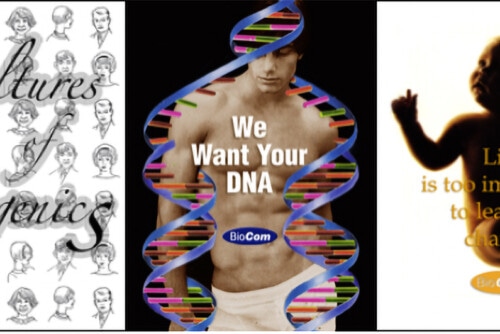Towards a More Inclusive Movement: Building Community Leadership
But what really sets Miss Major apart is her ability to organize others into spokespersons for themselves. And such organizing creates hope. TGI Justice is fighting for alternative sentencing for Bay Area transwomen and men in criminal court. The Transforming Justice Coalition has undertaken many projects, including building a national network to support transgender people as they transition out of prison. The LGBT Prisoner Safety Act, one of the policy priorities of the TGI Justice Project, would have amended existing California law to add sexual orientation and gender identity to the list of factors for consideration when classifying and housing prisoners. Though the bill was vetoed by Governor Arnold Schwarzenegger in 2010, it passed both the California Assembly and the Senate by overwhelming majorities, which was the successful result of a broad coalition effort by organizations like TGI Justice that effectively educated elected officials about the needs of incarcerated LGBT people.
But an example of a movement truly in motion came with the case of Alexis Giraldo. Alexis Giraldo is a transwoman who was housed in Folsom State Prison, the notorious men’s facility immortalized for its loneliness by Johnny Cash.1 Over the course of two months, she was brutally beaten and repeatedly raped by her cellmate. Despite informing corrections officers on multiple occasions and following the steps the system provided, Alexis was kept in the cell with her abuser by correction officers. She kept copies of her grievances for herself and TGI Justice. When the prison finally took action, they placed both Alexis and her abuser in solitary confinement—he for three days, she for nine months. Because of Alexis’s fastidious documentation, when she was released, she was in a position to sue the California Department of Corrections. The gross injustice done to Alexis received media attention and widespread community support. TGI Justice organized a rally for Alexis during her trial. Miss Major reached out to people to attend.
I sent an email to all the organizations saying that we needed support, and they showed up at the courthouse at 7:00 a.m. There were so many people there that there were crowds on all four corners in front of the courthouse. Women’s rights groups, radical sex organizations, HIV/AIDS organizations, human rights organizations, transwomen’s groups, API groups, healthcare agencies. About 200 people just showed up. Everybody was there.2
Alexis lost that case, but a higher court ruled that the case must be retried. She has another chance. Miss Major explained the case has been so significant because, “[Transwomen] got to see that their actions have an impact.”
Lessons Learned
Chance encounters in the Bay Area have changed more than a few lives, and my encounters with Miss Major certainly changed mine. Working with Miss Major over the years has reinforced my commitment to activism that includes advocating at all levels of government (local, state and federal), utilizing all formal mechanisms available (judicial, legislative, administrative, bilateral and multilateral), and relentless community organizing that builds on informal networks, resource ingenuity, and community resilience.
We must abolish the prison-industrial complex. But until that day, we must reform the criminal justice system. Prisons are defined by control, and those who hold the keys control everything within their walls. Correction authorities must be held accountable for the human rights violations they are directly and indirectly responsible for. Toward this end, relevant existing laws should be enforced, and where necessary, new laws should be implemented according to higher standards of conduct. Transgender people in prison should be housed according to their gender, with safety as a paramount concern. There should be zero tolerance for physical and sexual violence. Survivors of violence must be given adequate physical and psychological care and must never be housed in the vicinity of their abuser. Prisons must provide adequate, transgender-inclusive health care, dictated by medical need rather than one-size-fits-all policy. Medical care must include access to hormones and other priorities for transgender wellness. The excessive punishment of incarcerated transgender people, including the discriminatory and abusive use of solitary confinement, must stop. Incarcerated transgender people must be made aware of their rights and instructed in methods for filing effective grievances and lawsuits. As a queer movement, those of us who live freely must build bridges with those of us who are incarcerated, and together we must pursue legal and legislative strategies to promote alternatives to incarceration, including drug treatment programs. The police profiling of transgender people that often leads to incarceration must also end. As Miss Major has demonstrated in her life and work, some of the best among us have been incarcerated and deserve another chance.
We must ensure financial security for all, with a focus on the most vulnerable, including low-income transgender people of color. The realization of this lofty goal would require a holistic approach to law and policy including free education and job training, universal health care, equal rights under the law regardless of identity, rights for workers and worker associations, and the decriminalization of sex work. Specifically, Congress should enact and enforce with ample funding the Employee Non-Discrimination Act, inclusive of prohibitions on discrimination on the basis of gender identity; should enact the Employee Free Choice Act, to increase the likelihood of transgender people gaining job security through union jobs; and should extend unemployment benefits (including extended benefits, unemployment insurance, and emergency unemployment compensation), at a time when millions of Americans are unemployed.3 As Miss Major has taught us, everyone is entitled to the right to work with just compensation, and discrimination against those already at the margins creates even greater vulnerability to the gamut of human rights violations.
Finally, we must end all forms of violence. Until that day, we must provide emotional, financial, and health support to survivors of physical and sexual violence. Programs for survivors of violence must be transgender inclusive. We need popular education campaigns aimed at preventing violence, teaching survivors about their options, and fostering safer communities for all. We do not need increased policing and incarceration but community-based solutions. As Miss Major’s work demonstrates, cycles of violence can be broken and survivors can not only heal but thrive.
The quest for justice requires a combination of effective leadership and mass mobilization. Miss Major’s work provides LGBT activists with an inspiring example of both. She has responded to issues others have overlooked, supported people society has failed, and built a new generation of community members and leaders. Her work is transformative in its own right, but significantly, it is also more effective than mainstream LGBT organizing because it actively creates a space for all queers and our life challenges. She provides a model for an LGBT movement with priorities that are broader, more relevant to more people, more linked to other human rights, and defined by the most vulnerable among us. Her vision is one where we do not reject our queer selves or messy lives, but insist that the mainstream itself must change. Miss Major tells us that we must hold our heads high and say: This is what pride looks like.
- Johnny Cash, “Folsom Prison Blues,” With His Hot and Blue Guitar, Sun Records: 1955. [↩]
- Miss Major, personal interview, July 11-13, 2009, via phone. Transcripts on file with author. [↩]
- Heather Boushey, “No Time to End Unemployment Benefits” Center for American Progress 23 Nov. 2011. (Accessed January 10, 2012). [↩]




